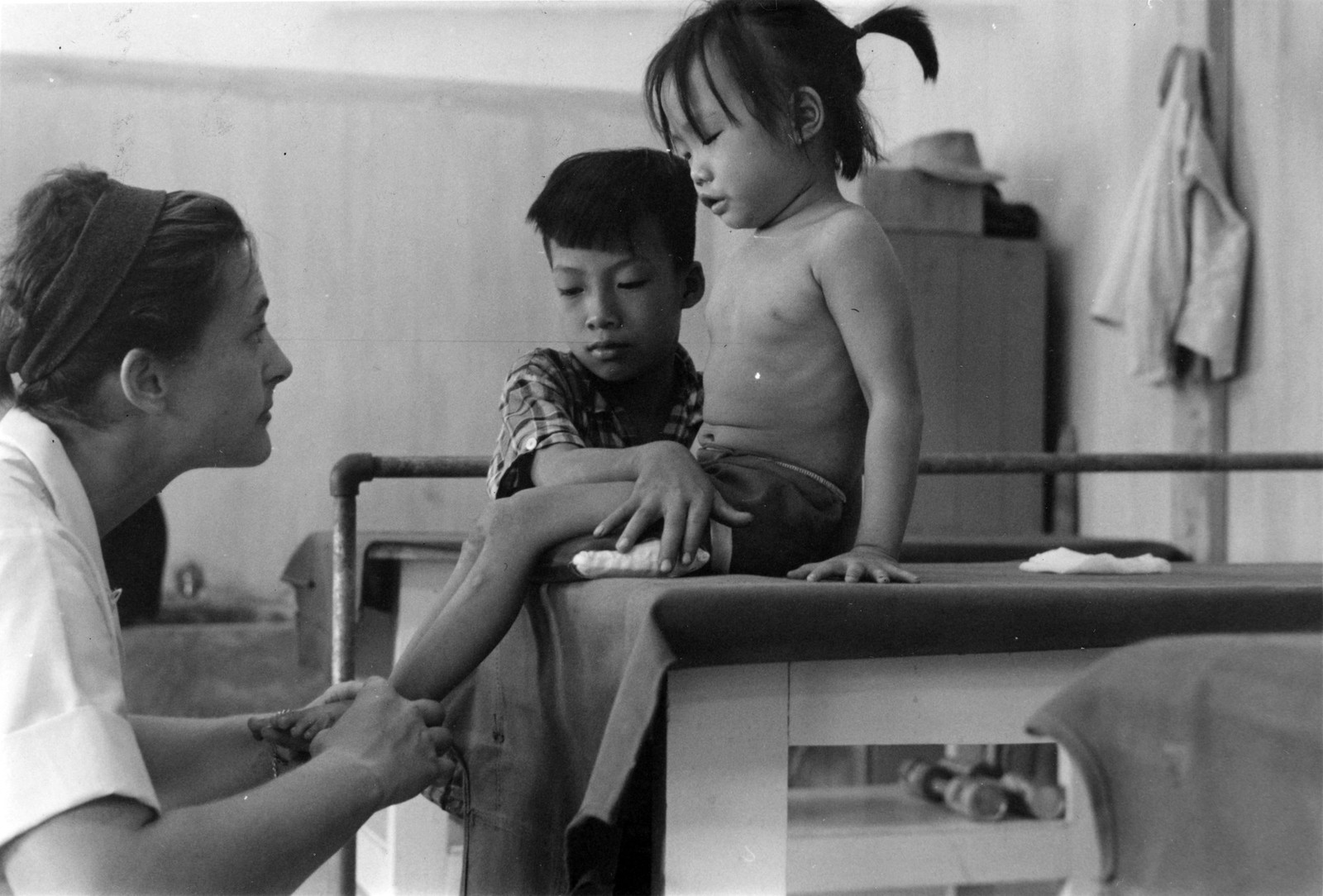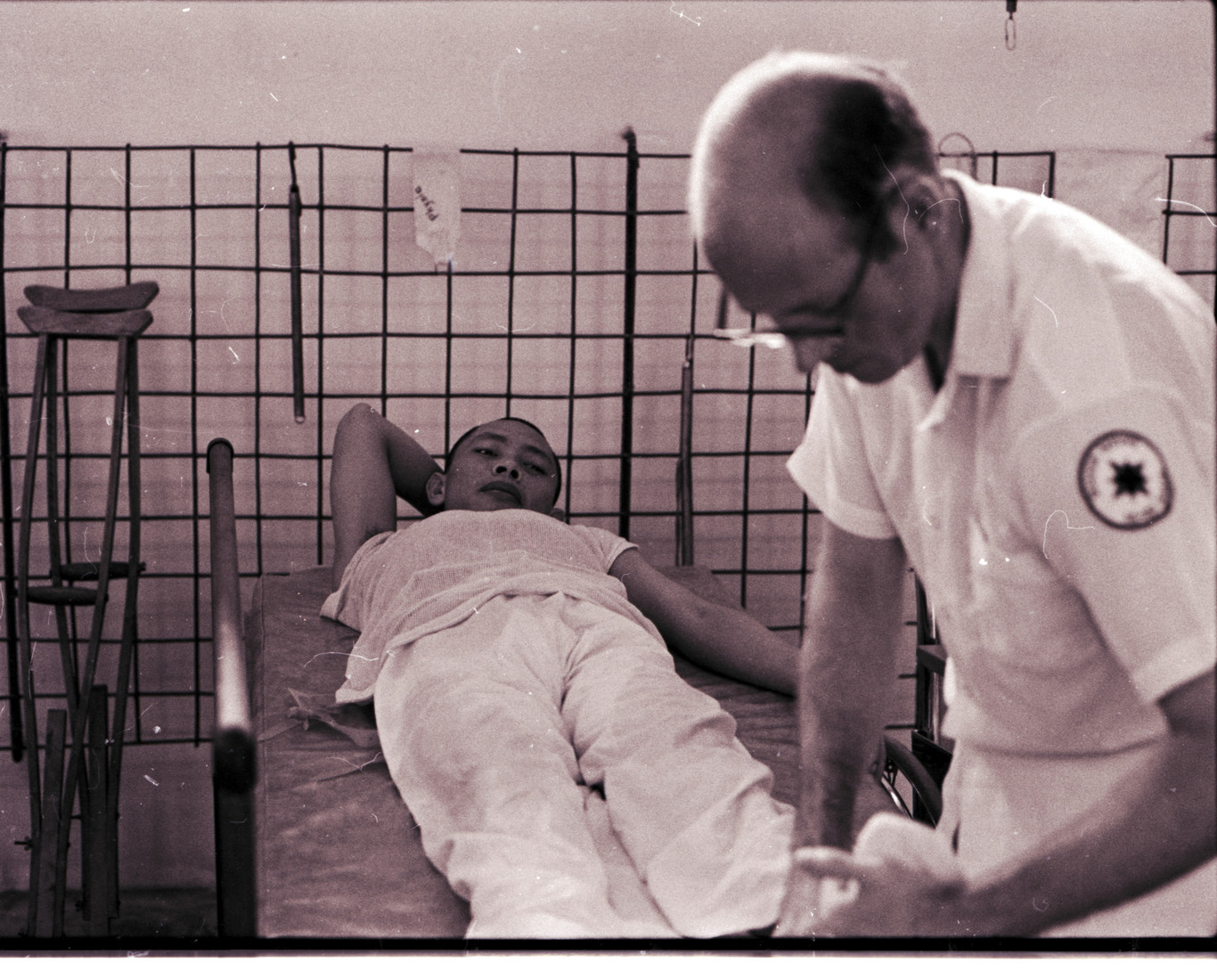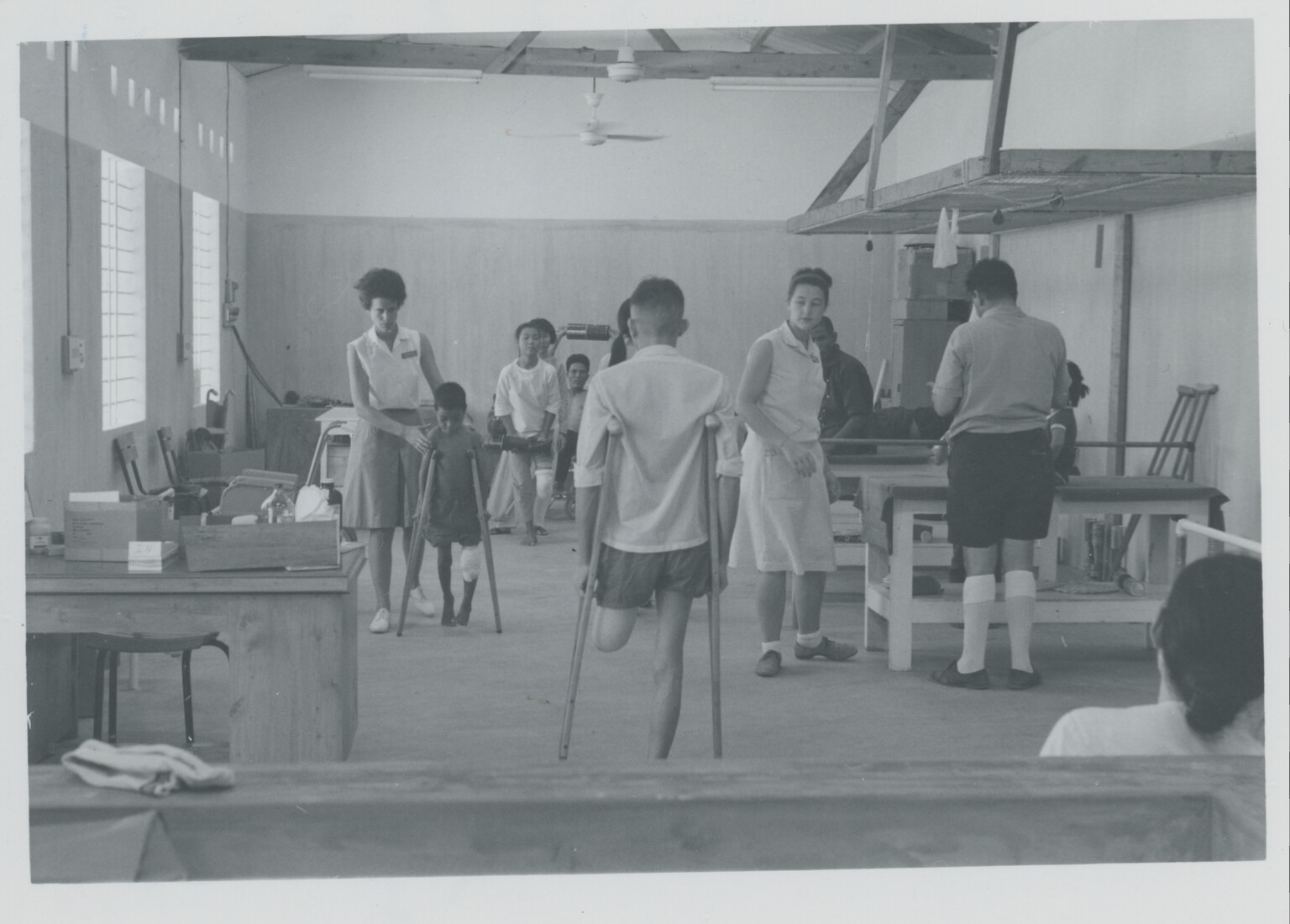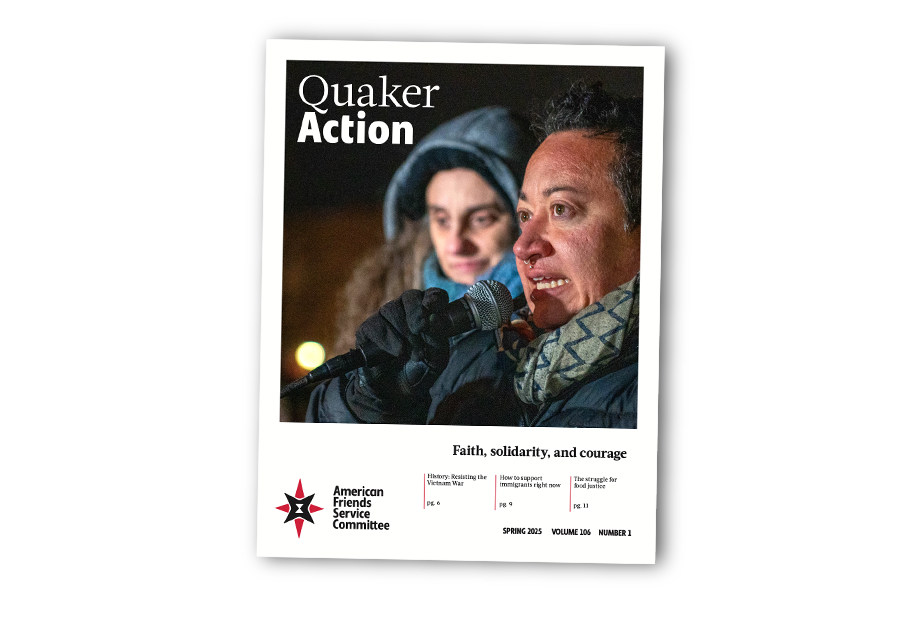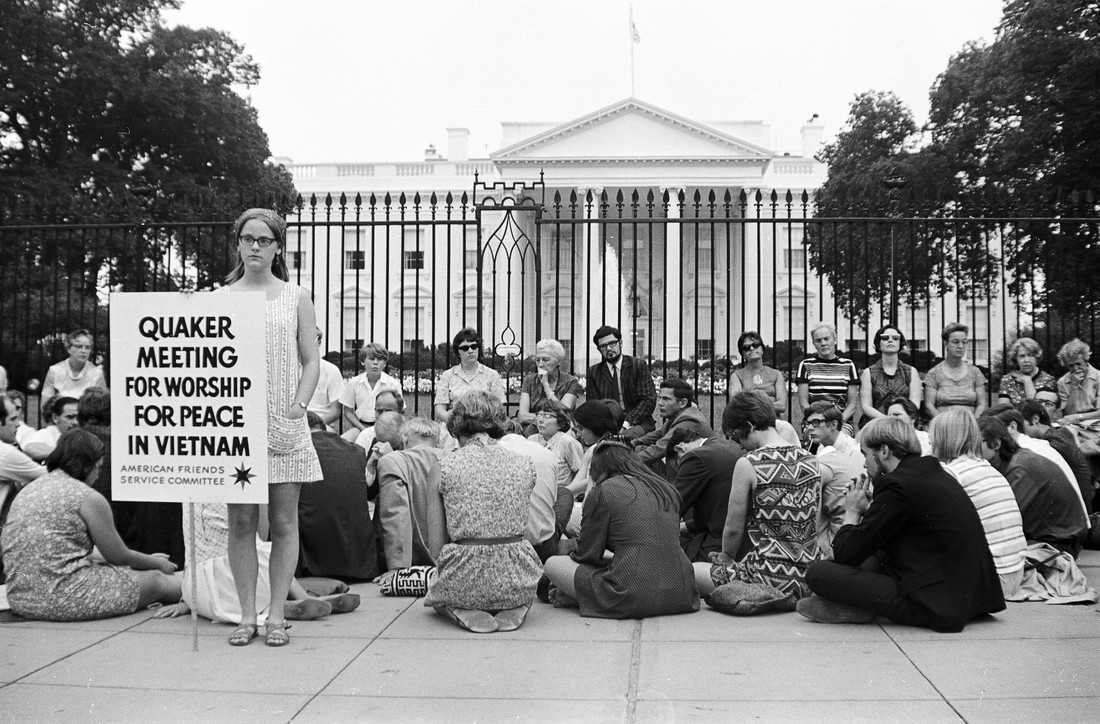
1969 vigil at the White House. Photo: AFSC Archives
As U.S. involvement in Vietnam escalated, tens of thousands of men across the U.S. made a courageous commitment to nonviolence: They refused to fight in the military.
AFSC provided crucial support to these conscientious objectors. We also worked alongside those organizing protests nationwide. Together, we challenged war profiteers and built bridges among people on both sides of the conflict.
April 30, 2025, marks the 50th anniversary of the end of the Vietnam War. On this milestone, we look back at some key ways war resisters made a difference with support from AFSC.
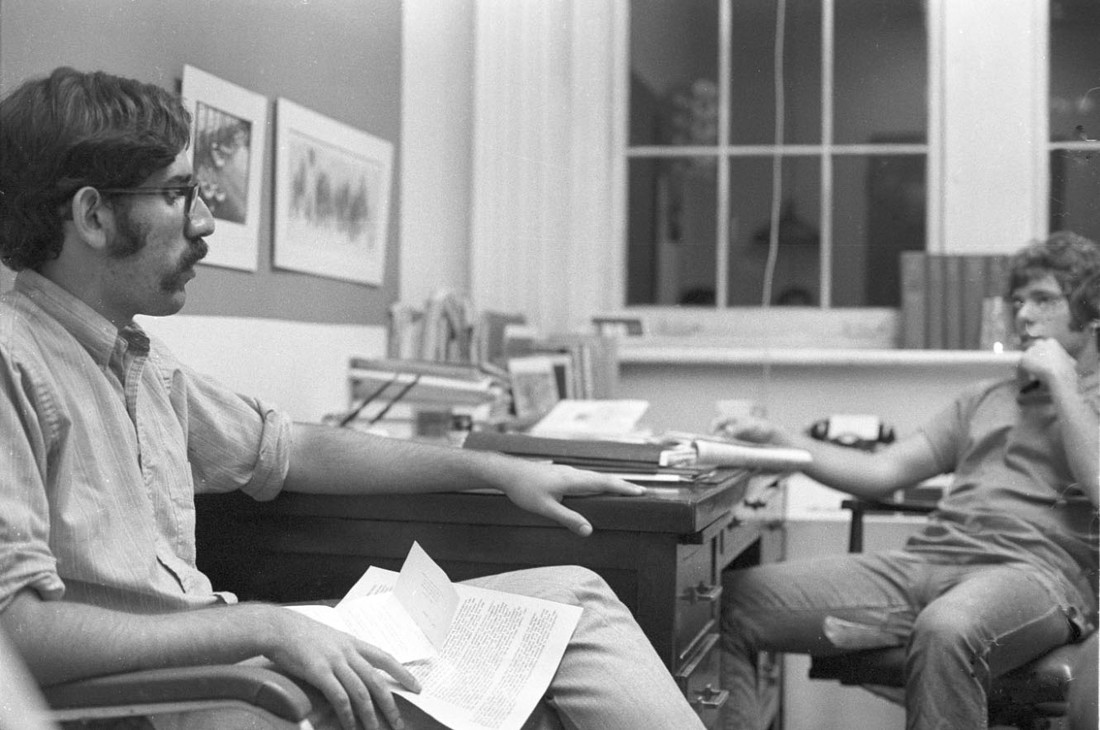
AFSC draft counselors during the Vietnam War. Photo: AFSC Archives
Opposing the draft
AFSC was founded in 1917 by conscientious objectors committed to creating alternatives to military service during World War I.
By the Vietnam era, AFSC was one of the main sources of counseling and support for men resisting the draft for moral or political reasons. Tens of thousands of draft resisters received counseling from AFSC staff in Chicago, San Francisco, Seattle, Pasadena, and other U.S. cities.
With the transition to an all-volunteer army in 1973, U.S. military recruiters began to focus on low-income youth and communities of color. To challenge this “poverty draft,” AFSC developed educational materials to help young people learn about non-military alternatives after high school. We also created resources to help students, families, schools, and others identify deceptive recruiting practices.
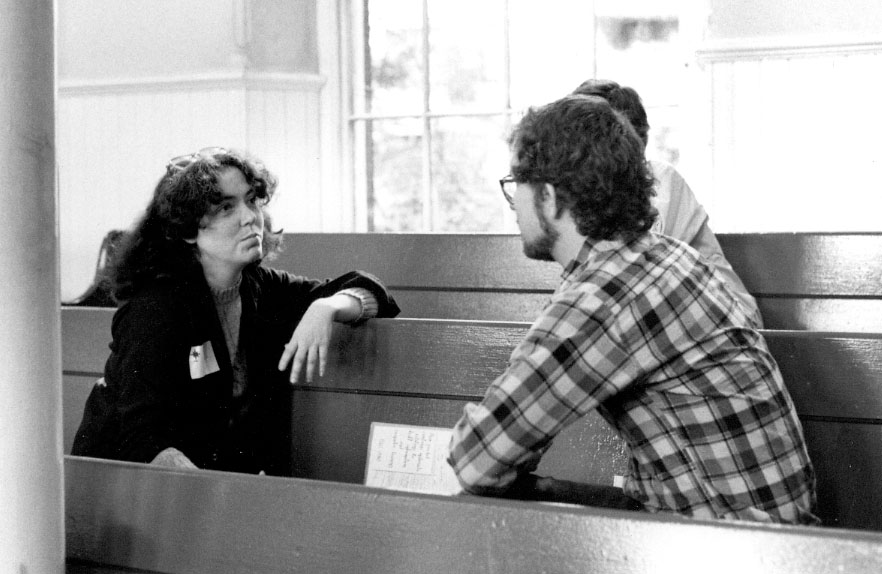
AFSC draft counselors during the Vietnam War. Photo: AFSC Archives
Healing the wounds of war
During the height of the Vietnam War, AFSC established the Quaker Rehabilitation Center in Quang Ngai Province.
Although the rehabilitation center was located in South Vietnam, staff provided treatment to injured civilians on both sides of the conflict. Patients—including young children—received physical therapy and prosthetic limbs and braces made at the center.
From its beginnings, AFSC focused on training local Vietnamese in the skills needed to provide these services. “We hired all local people to work with us and recruited widely for students to enter physical therapy and prosthetic classes,” wrote AFSC physical therapist Dot Weller. “Our goal was to build and train the local people so that they could take over when we left. Proud to say we achieved just that.”
When the war was over, the Vietnamese government took on responsibility for the clinic.
Confronting war profiteers
For two decades, starting in 1969, a group of AFSC researchers staffed a program known as NARMIC (National Action/Research on the Military Industrial Complex).
The program was created to research companies profiting from the Vietnam War and produce resources—including fliers, slideshows, and books—for anti-war campaigns.
Using data on Pentagon contracts, NARMIC staff identified and mapped connections between weapons manufacturers. Across the country, community activists could contact NARMIC directly to investigate whether companies in their towns were producing war-related materials. They also received research support for campaigns pressuring companies like Honeywell and General Electric to stop producing weapons of war.
NARMIC’s research supported peace activists well beyond Vietnam, including efforts to change U.S. policy in Central America, and the anti-nuclear movement. Today, AFSC’s Action Center for Corporate Accountability (ACCA) carries on this legacy. ACCA provides activists with research and tools to divest from corporations complicit in wars, border militarization, immigrant detention, mass incarceration, and the Israeli occupation and apartheid.
Stories of courage & conscience
Last year, we invited people to share their stories of resisting the war in Vietnam. Thank you to the dozens of people who responded! Here are excerpts from some of those stories and others from our AFSC Archives.
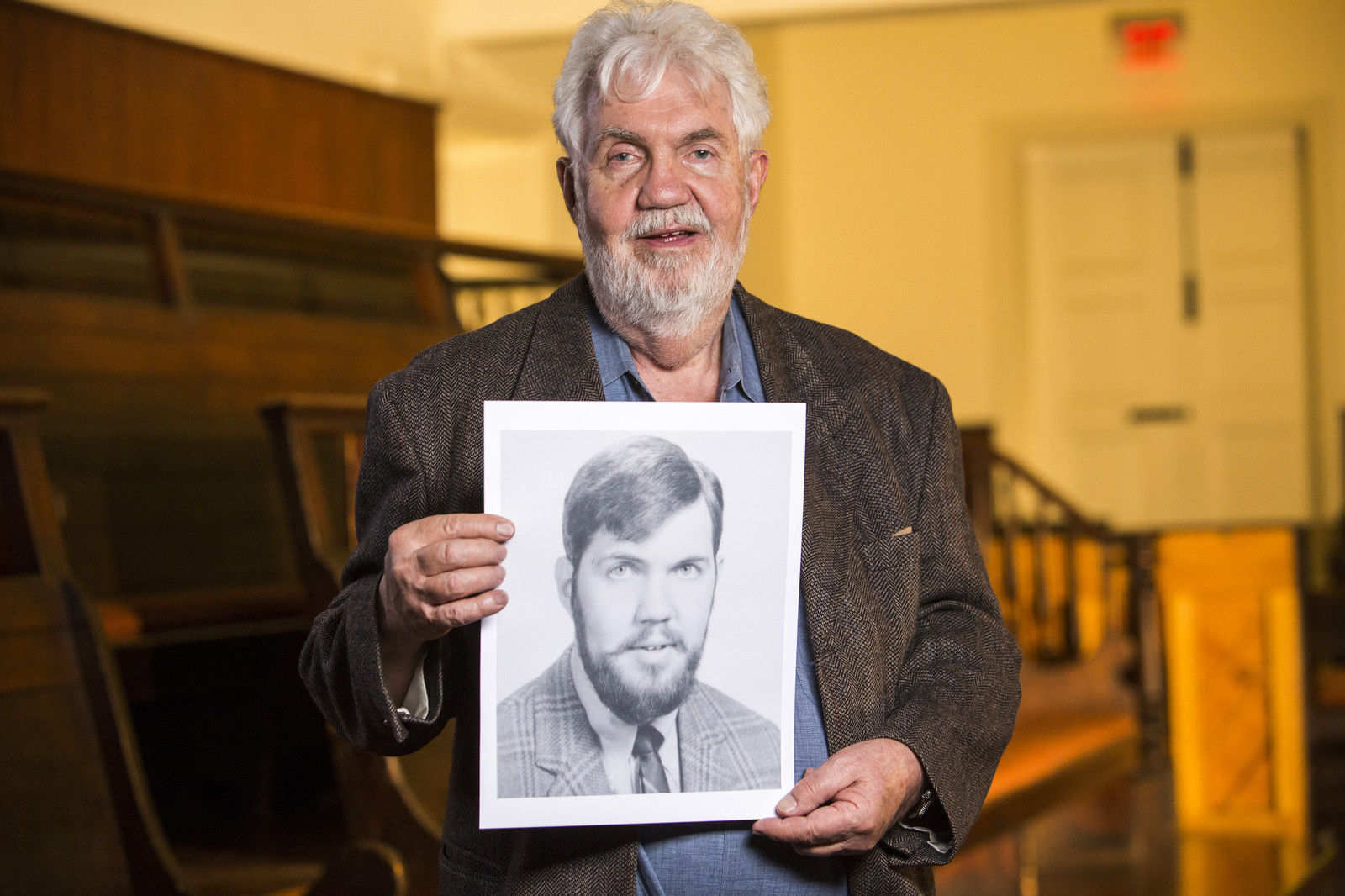
"Once I got to the University of Connecticut and started a post-doctoral fellowship, I reached out to the AFSC office in Cambridge around spring/summer 1967. They had a course on draft counseling and the law—probably three or four sessions. It was an hour and a half drive each way, but I took that knowledge back to the University of Connecticut and set up a draft counseling center. Together with a lawyer, a psychiatrist, and a few others, we started providing draft counseling at the university.”
—RICHARD MORSE, DRAFT COUNSELOR
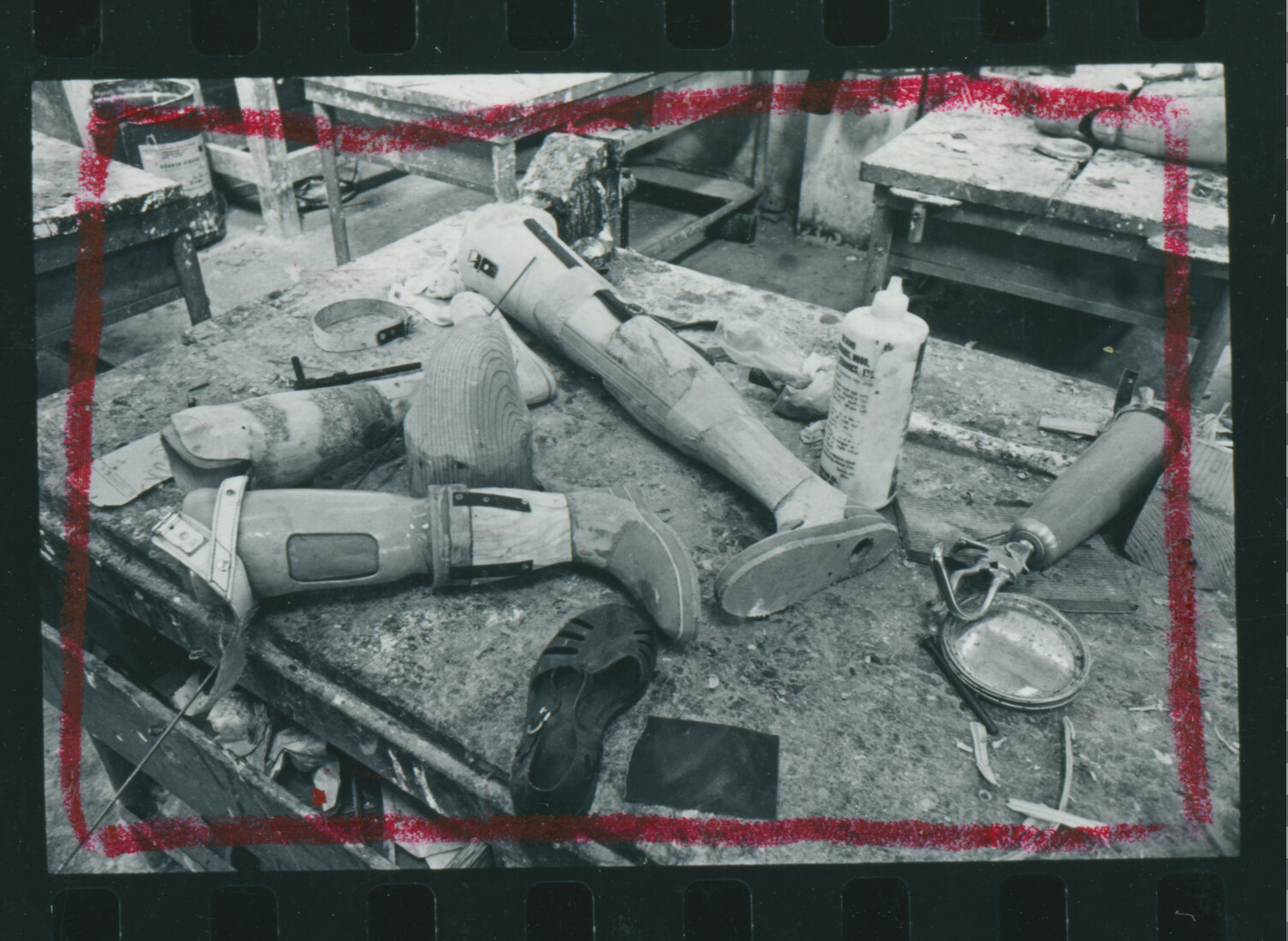
"In 1967, a group of us, including my now wife Martha, started meeting. We wanted to resist. … In the beginning, we leaned heavily on AFSC. They paid a core group of us $25 a week and they gave us access to their telephones and money to print literature. Vietnam Summer was a time of transition for the anti-war movement. It was a push from college campuses into the community. After that summer our group formed Philadelphia Resistance. Over the years, I was arrested 15 times. … We ran a printing press. We got intense media coverage. We refused to pay taxes. We held countless rallies. All of it was our way to defy, slow down, and make it more expensive for the Selective Service System to continue to operate. Each year, more and more people turned against the war.”
—TONY AVIRGAN, WAR RESISTER
“I was fortunate to be involved with the AFSC project in Quang Ngai at a time when many of the prosthetists and physical therapists were replacing the AFSC staff. A seed planted by past AFSC staff had come to fruition as Vietnamese staff assumed full-time positions. During my tenure, I was able to secretly take photographs of political prisoners who had been tortured. In 1973, when I returned from Vietnam, these photographs added witness to a major anti-war campaign highlighting how the U.S. government was funding the imprisonment of thousands of innocent Vietnamese civilians. Amnesty International and AFSC sponsored me on a speaking tour to urge Americans to take action to stop the U.S. government from funding the war.”
—JANE BARTON GRIFFITH, VOLUNTEER IN VIETNAM
